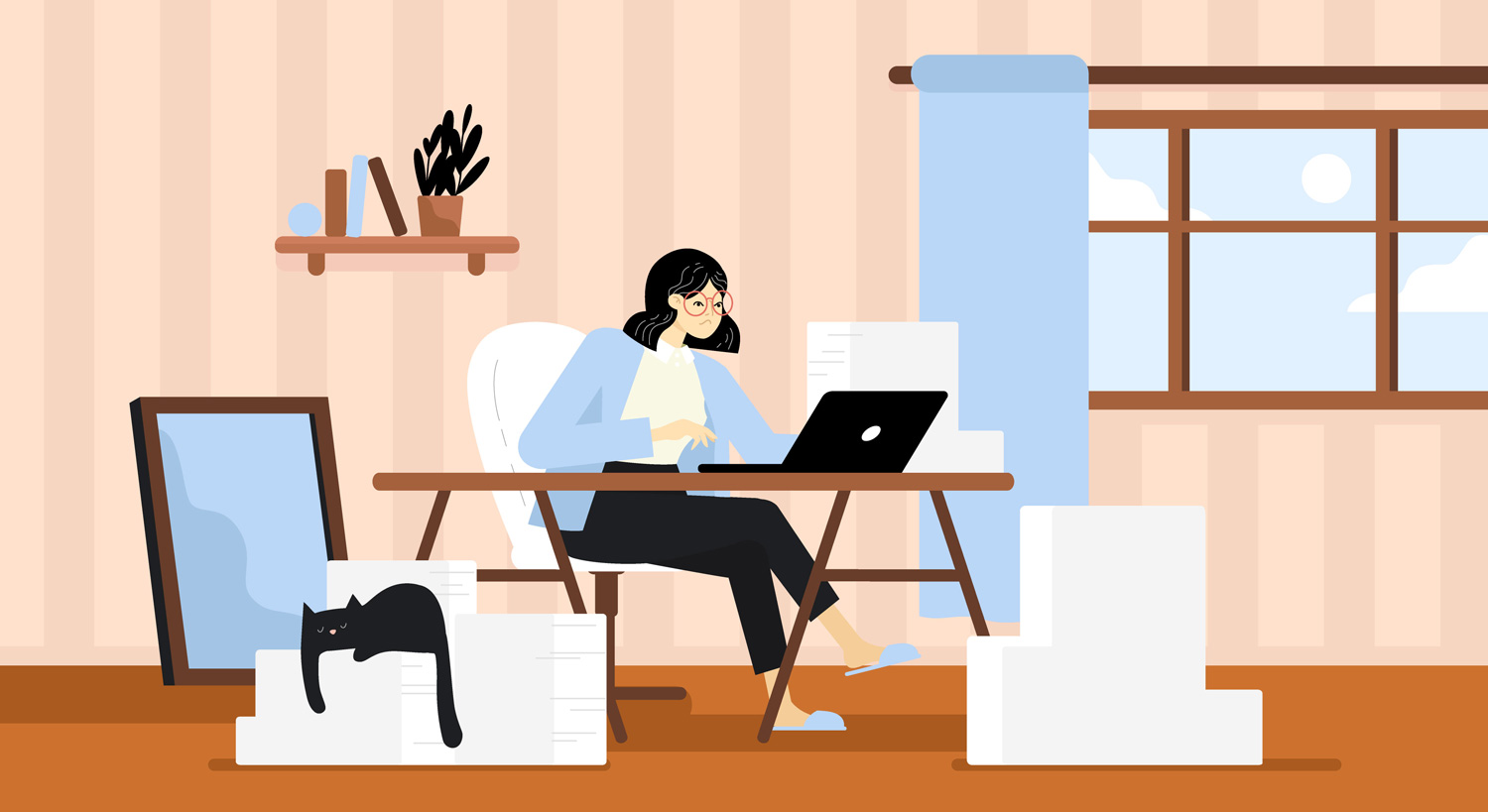Remote working doesn’t suit everyone, but there are times when smart working becomes a necessity for companies, like in this delicate period of COVID-19 emergency facing us all.
Is this the first time that you’ve worked long hours from home? We recently wrote a short, simple guide for you. Now we’re looking at another aspect of this subject instead, no less important than productivity: wellbeing.
Mental and physical wellbeing while working from home: 10 useful tips
-
Careful with your posture
If you are lucky enough to have a home office, you probably use an ergonomic chair and the right kind of desk for your needs. It isn’t always possible though. You often find yourself working in unsuitable places like on the sofa, in an armchair, at the kitchen table or even in bed.
To avoid back and joint pain, try and find the best work position. Adapt your seating, maybe with the help of some firm cushions, and keep your upper body as straight as you can. Alternate periods of working standing up and sitting down to improve circulation and avoid straining your back too much. -
Protect your eyesight
It is undeniable that eyesight is affected by working on a computer. To avoid worsening the situation, it is essential to follow a few basic rules both in the office and when remote working.
First of all, always keep the distance between your eyes and the screen to a minimum of 50 cm, especially if you have a 15″ or 17″ laptop. Secondly, think about the light source. Avoid reflections on the screen and choose a well-lit room. -
Hearing is important
When you can’t talk face-to-face with people, the phone is the quickest and easiest solution. But it has its disadvantages. Spending too much time on your mobile phone is bad for your hearing and causes muscular pain through poor posture. Use headphones, or speakers and your computer microphone if on a conference call.
-
Take realistic breaks, as you would in the office
Smart working doesn’t mean working non-stop or getting distracted every 5 minutes. For peak concentration, schedule the same breaks you would take in your normal working day in the office.
-
Get your muscles moving
One of the most common, recurring errors is forgetting about physical fitness. Do at least ten minutes of stretches every day. It will improve your posture and stop you from getting unpleasant muscular aches and pains. If you don’t go to the gym regularly, try one of the many apps available free online!
-
Try to eat healthy
Make sure you follow a healthy diet. Prepare well-balanced meals for breakfast, lunch and dinner. And don’t forget to hydrate!
-
Fresh air
Air the room to get more oxygen into your home and get rid of any pollutants. If you have a balcony or garden, take a little break from work and go outside. A breath of fresh air every now and then does you good and will lift your spirits, especially if it is a nice sunny day. If you don’t have one, place some plants around your workspace.
-
Stick to your normal sleep routine
Getting a good night’s sleep will improve life and make you more productive. Try to keep regular hours, even if you don’t have to go into the office the next day. Where possible, avoid going to bed too late or, on the contrary, waking up at the last minute.
-
Smart dressing
Staying in your pyjamas is a total no-no, even if you don’t have any video conference calls scheduled that day. Your clothes can positively affect your mood and motivation, making you feel like you are actually in the office. You can ditch the shirt and tie or smart suit though, even if you normally wear them, as a small concession to smart working.
-
Socialise
Various studies show that isolation carries more subtle and frequent psychological risks than we imagine. Try to stay in contact with colleagues during working hours and also friends and family for the rest of the day. It will improve your mood!

